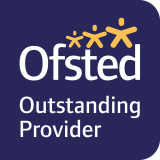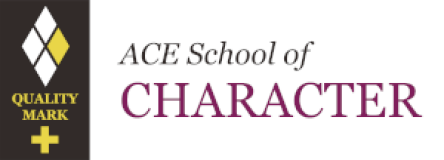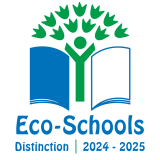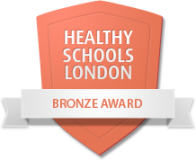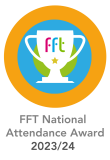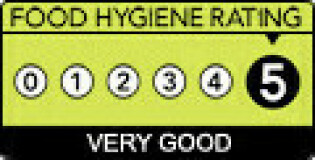Computing
Staff
Mrs Wright – Head of Department
Mr Ahmed – Progress and Achievement Computer Science
Mrs Ngwa – Progress and Achievement ICT
Mrs Sharma – Progress and Achievement KS3
Mrs Siddiq
Mr Landa
Department Overview
We believe that every student at Barking Abbey School should be able to use a variety of industry standard software and hardware. We want our students to develop the foundations to enable them to be discerning, life-long learners in an ever increasing fast moving industry through computational thinking and digital creativity. The Computing department aims to encourage students to become both independent enquirers and creative thinkers.
The Computing syllabus has been designed to cover the three main areas of Digital Literacy, Computer Science and Information Technology.
This course is designed to equip students with the logical and computational skills necessary to succeed at A-level, the workplace or beyond. It recognises the well-established methodologies of computing, alongside the technological advances which make it such a dynamic subject.
Computer Science and Information Technology are one of the fastest growing, sustainable sectors of the economy. The work is designed not only to challenge students to create solutions to key tasks and problems in the real world, but to encourage students to become both independent enquirers and creative thinkers.
In ICT and Computer Science lessons, students are taught how to become efficient users of digital technology, ranging from creating digital animations to programming and sequencing.
ICT and Computer Science are taught across all Key Stages at Barking Abbey School.
Our highly skilled staff have expertise across the wide range of emerging technologies, as well as a broad base in the more established areas of the subject.
We offer GCSE ICT and GCSE Computer Science at KS4 and A Level Computer Science and ICT at KS5. Our qualifications concentrate on the use of ICT and Computing in the real world, equipping students with skills they will use in all walks of life.
Curriculum
KS3
At KS3 students follow the Computing National Curriculum, covering digital literacy, information and communication technology and programing. ICT and Computer Science lessons are taught for 1 hour a week in which Pupils undertake a combination of ICT and Computing units. Pupils begin by developing key skills across a range of software in order to assist their application of ICT across other subjects and in real life scenarios.
Year 7 Overview
Through a series of projects, students will learn about e-Safety and digital literacy. They will develop skills in presenting information to ensure fitness for purpose and suitability for audience. They will master a range of spreadsheet skills and learn about computational thinking through flowcharts and object-based programing.
Year 8 Overview
This is a very creative year in computing, where students learn about digital graphics manipulation, to create original images which are imported and animated using Flash. They complete projects using movie software, flash animations and creating websites with HTML. They also learn about hardware and software, and how to create computer programs using Python, and the importance of cybersecurity.
KS4
GCSE Computer Science
Students study OCR GCSE Computer Science course.
Computer Science lessons are taught for 2 hours a week.
The course comprises of three components:
-
A theory module that is externally examined and is worth 50% of the marks
-
A programming module that is externally examined and is worth 50% of the marks
-
A non-examined programming Controlled Assessment unit which is completed over a 20 hour period and consolidates the learning of the practical aspects of the course
The qualification will build on the knowledge, understanding and skills established through the Computer Science elements of the Key Stage 3 programme of study. The content has been designed not only to allow for a solid basis of understanding but to engage learners and get them thinking about real world application. Students also learn how to create applications that: create simple computer games, run on mobile devices, operate in a web enabled environment and gain an understanding of the fundamental concepts around creating software applications.
Students can progress to study Advanced Level Computer Science. This course also serves as a good foundation for Technology and Engineering courses at university.
GCSE ICT
Students study OCR Creative I Media qualification
Our aim is to encourage learners to develop skills to create software solutions to different problems.
The Cambridge Nationals in Creative I Media equips learners with a range of creative media skills and provide opportunities to develop, essential knowledge and transferable skills such as research, planning, and review, working with others and communicating creative concepts effectively. Through the use of these skills, learners will ultimately be creating fit-for-purpose creative media products. The Cambridge Nationals in Creative I Media also challenge all learners, including high attaining learners, by introducing them to demanding material and techniques; encouraging independence and creativity and providing tasks that engage with the most taxing aspects of the National Curriculum
We aim to engage and enthuse young people with an interest in creative computing, digital graphics and animations.
Students who study this course complete a written examination and three coursework based modules covering digital graphics, digital sound and website design.
KS5
At Key Stage 5 students can choose either A LEVEL Computer Science or BTEC LEVEL 3 certificate in ICT (EQUIVALENT TO 1 A LEVEL)
A LEVEL Computer Science
A level Computer Science allows students to apply the academic principles learned in the classroom to real world systems. It is an intensely creative subject that combines invention and excitement, and can look at the natural world through a digital prism.
The aims of this qualification are to enable learners to develop:
-
An understanding and ability to apply the fundamental principles and concepts of computer science
-
The ability to analyse problems in computational terms
-
The capacity to think creatively, innovatively, analytically, logically and critically
Assessment overview
Students must take all three components to be awarded the OCR A Level in Computer Science.
|
Component |
Marks |
Duration |
Weighting |
|
Computer systems 01 (Externally assessed) |
140 |
2 hours 30 mins |
40% |
|
Algorithms and programming – 02(Externally assessed) |
140 |
2 hours 30 mins |
40% |
|
Programming project-03 (Internally assessed and externally moderated) |
70 |
- |
20% |
BTEC LEVEL 3 ICT (EQUIVALENT TO 1 A LEVEL)
This qualification is designed for learners who are interested in an introduction to the study of creating IT systems to manage and share information, alongside other fields of study, with a view to progressing to a wide range of higher education courses, not necessarily just in IT.
This course enables students to identify and solve problems by developing ICT systems in a chosen scenario. Students also learn how to manage data through the design and usage of Databases in an examined unit.
Through a further examined unit, students gain a deeper understanding about the effective use of ICT systems and make use of IT applications typically used throughout the industry..
Two final project will allow students to create professional and well-designed digital artefact which will be assessed internally and moderated externally.
Assessment overview
Students will cover the following units
UNIT 1:- Information Technology Systems
UNIT 2:- Creating Systems to Manage Information
UNIT 3:- Using Social Media in Business
UNIT 4:- Website Development
Extracurricular Activities
The department provides support sessions after school to help raise attainment in ICT and Computer Science. Students are able to use this time to improve course work, extend their learning and provide opportunities for students who have no access to computers at home to complete homework and coursework
Resources/Facilities
The department delivers lessons in several well-equipped ICT suites. We have a variety of software packages at our disposal including Microsoft Office, Adobe Web Suite, Game Maker, Scratch and specialist development environments for programming.
"Computers themselves, and software yet to be developed, will revolutionise the way we learn."
Steve Jobs


